Winter Care Advice: How to stay warm in winter
British winter time has arrived and with it, comes more than Christmas decorations and festive feelings.
The drastic change in temperature can have serious effects on vulnerable people, particularly those in care. It’s our job at Nurseplus, to provide care and advice on how to stay warm in winter. So, here we’ll run through some tips to stop feeling cold during winter time, as well as some helpful warm-up exercise routines and guidance on how to fight a cold.
Follow our tips and help those you care for remain well during the colder months and learn how to stay warm in winter.
So, who is most at risk when the temperature drops
Most of us can easily regulate our body temperatures by wearing warm winter clothes or enjoying regular warm-up exercise such as walks and going to the gym. For those in care, knowing how to stay warm in winter is vital to their health and well-being. As a carer, you’ll want to focus on people who:
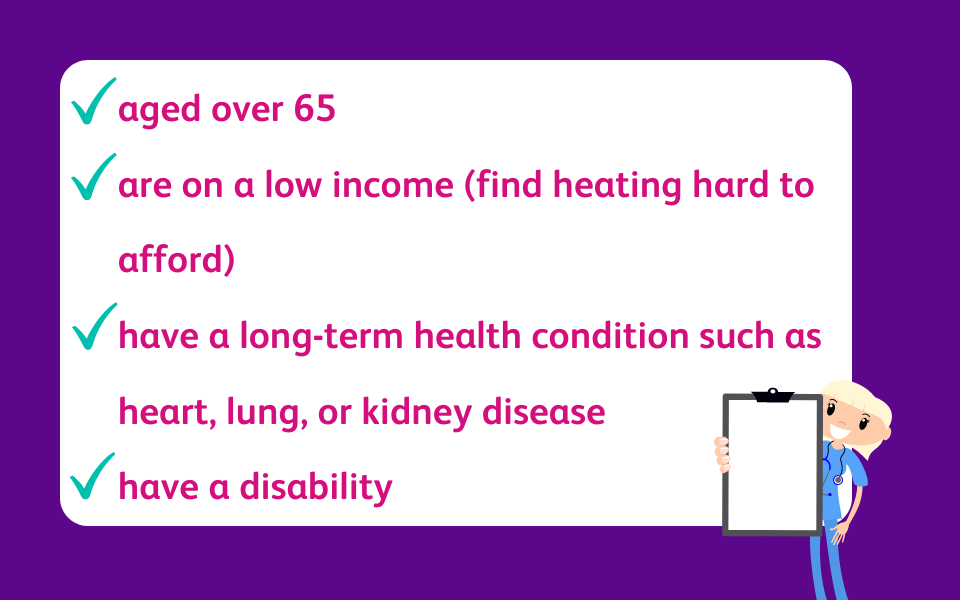
These are people who will benefit most from our advice and will benefit from learning how to stop feeling cold this winter.
Staying well in winter
For the people in your care or those that fall into our “at risk” category, it’s important to keep up with recommended vaccinations and boosters as well as pay more attention to what may be considered minor ailments in the wintertime. Where we may dismiss illnesses such as sore throats, colds, aches, pains, or headaches in the summer, during winter its a different story, and for those “at risk”, medicines and further treatment is advised.
How to fight a cold
There are plenty of ways to help ease a cold, and these simple tips could help those you care for stay well in these colder months. Knowing how to fight a cold can help the people you care for, and yourself, stay well this winter.




How to stay warm in winter
An obvious but easy way to keep warm during a British winter is to wrap up in warm clothes. This does not mean putting on your thickest jumper.
In fact, an easier and more efficient way to stay warm during the colder months is to choose multiple layers of thin clothing, allowing you to add or remove items easily as your temperature changes.
We’ve put together a quick winter wardrobe check so you can help those you care for learn how to stay warm in winter.
Winter wardrobe check:
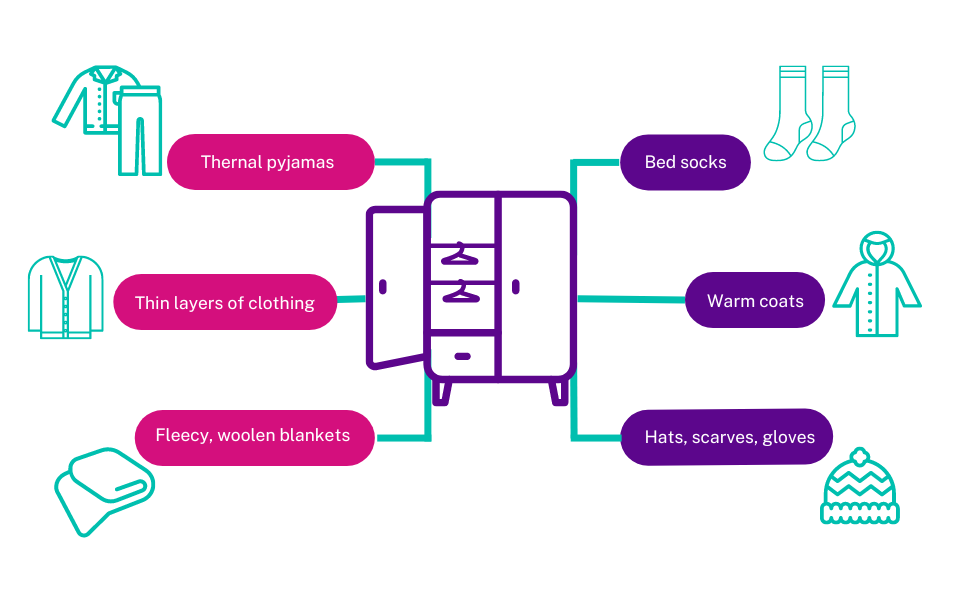
When you are at work, check the people in your care are suitably dressed for their activities that day.
If you know they are going outside, outer layers are advised, particularly thick socks and weatherproof boots.
For those staying indoors, long sleeves and pants, with a fleecy blanket to hand if they are stationary will help them keep warm.
How to stay warm in winter at home
Vulnerable people who need care at home this winter may be worried or struggling with energy bills and heating their homes.
There are resources from the government to help with the costs of keeping warm this winter.
Other home heating advice includes:
keeping the home at an optimum temperature, particularly in bedrooms - the advisory temperature is 18 degrees
an electric blanket can also help people keep warm in winter - avoid rising energy costs and use blankets that heat the bed before getting in
in-room heaters and open fires need proper ventilation and practices must be observed such as venting windows and being sure chimneys are kept clear
As you will be aware, the people you care for, particularly the elderly, can spend more than average time being stationary. In these instances and during the colder months a hot water bottle can help, but it is very important to remember that the water in the bottle should be warm and not boiling to avoid scalding.
Important Rule: Never use an electric blanket and a hot water bottle to stay warm at night, this can be incredibly dangerous and poses a risk of electrocution. |
Eat your way warm
One of the best things about a British winter is comfort food. There are many benefits to enjoying a hot bowl of soup or stew when it gets cold. As a carer, you can help the people you care for learn how to stay warm in winter with healthy, hearty recipes.
Not only are soups and stews a great way of getting an array of vegetables into the diets of the people you look after, but they can be easy and inexpensive to prepare. Plus you can batch-cook your chosen recipes which makes planning and feeding the people you care for simple and easy.
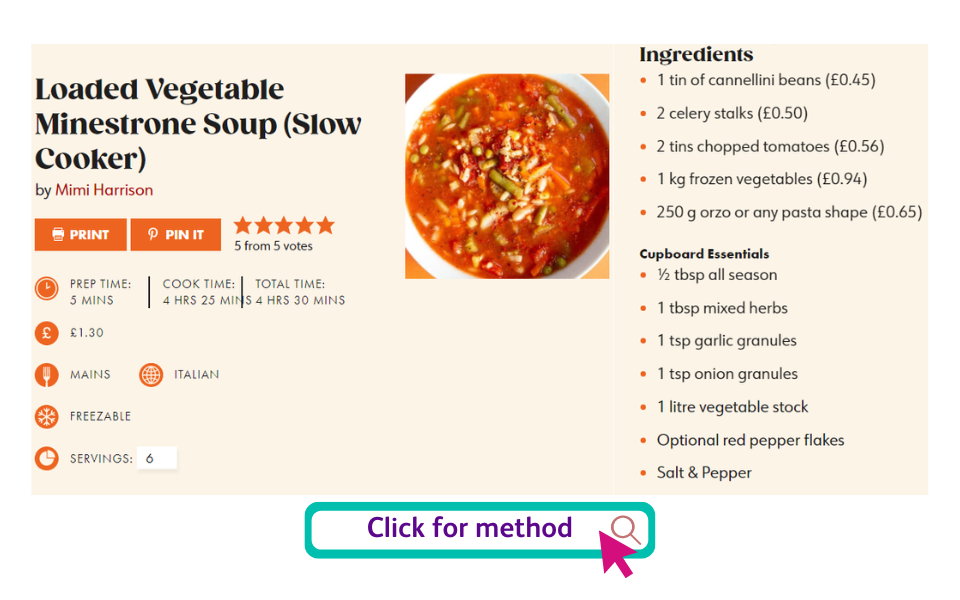
A healthy balanced diet can even help the body know how to fight a cold and other winter infections. There are even magic vitamins with healing powers and health-boosting effects that you can include in your winter meal planning.
Vitamin D – known as the sunshine vitamin. You would usually get plenty of this during the summer but, when the sun isn’t shining, the lack of vitamin D makes fighting the winter blues more difficult, and common winter diseases can easily take effect. Top up your vitamin D by introducing more fish and dairy into your diet.

Vitamin C – often known as the magic vitamin that strengthens your immune system and helps the body learn how to fight a cold. This vitamin is easy to include in a warm and wintery diet as you can find it in leafy greens, citrus fruits, and cranberries.

Warm-up exercise advice
As previously mentioned, the people you care for can often be more sedentary in their day-to-day lives so, a great way to stay warm in winter is by introducing simple warm-up exercise routines into the day. There are easier options such as venturing outdoors for a stroll around the park, the local woods, or even the garden. But remember to keep warm by wrapping up as well.
For people who are less mobile, or when the weather isn’t optimum for outdoor activities, there are a few ways to help keep the blood flowing and shake off those shivers. It's best to get the people you care for moving at least once an hour. Even if they remain seated there’s plenty you can help them do to stay warm in winter.
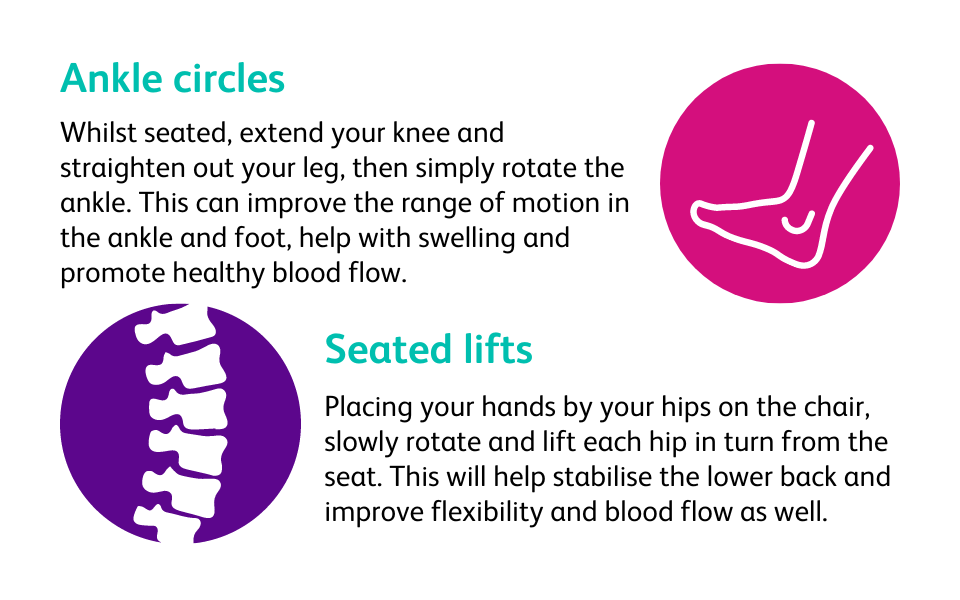
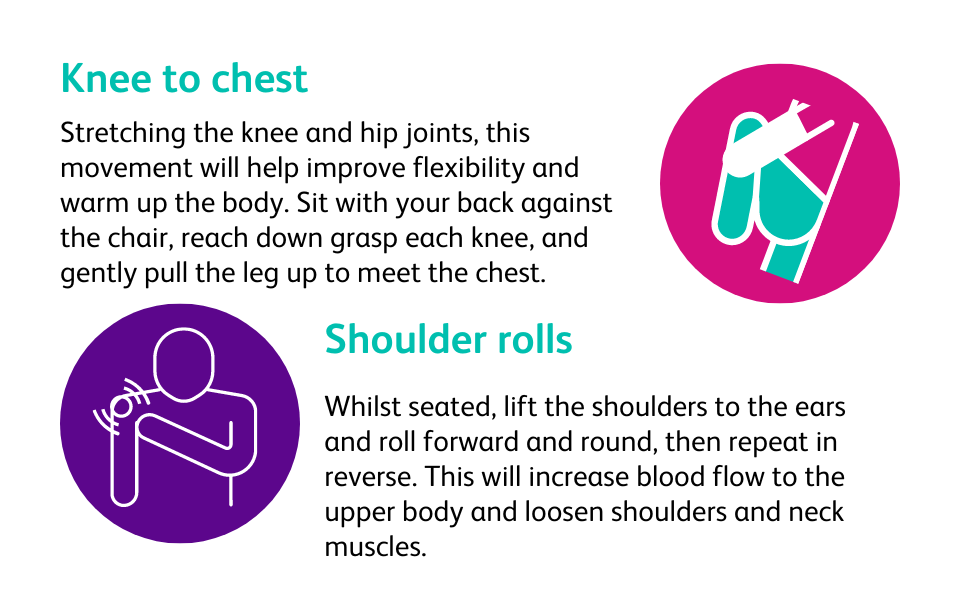
All exercises should be repeated 10 times, as long as the people doing the exercises are comfortable and able to do so. |
As a carer, the well-being and comfort of the people you care for is a top priority, but we also need you to look after yourselves during the winter months. You are essential to providing the high standards and quality of care Nurseplus aims to deliver, so knowing how to stay warm in winter is as important to you as it is to those you care for, and us.
Posted on November 23, 2022 by Nurseplus
